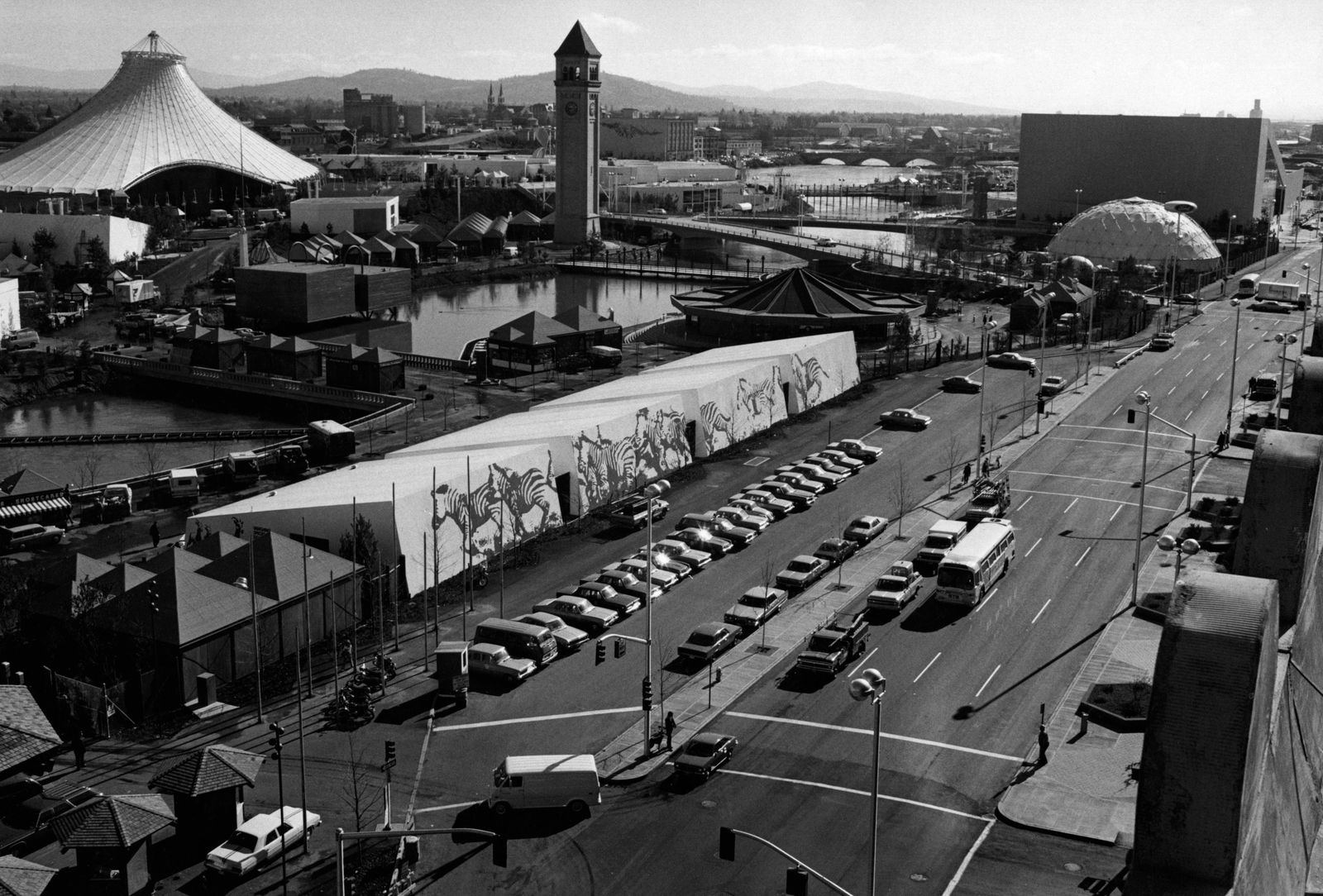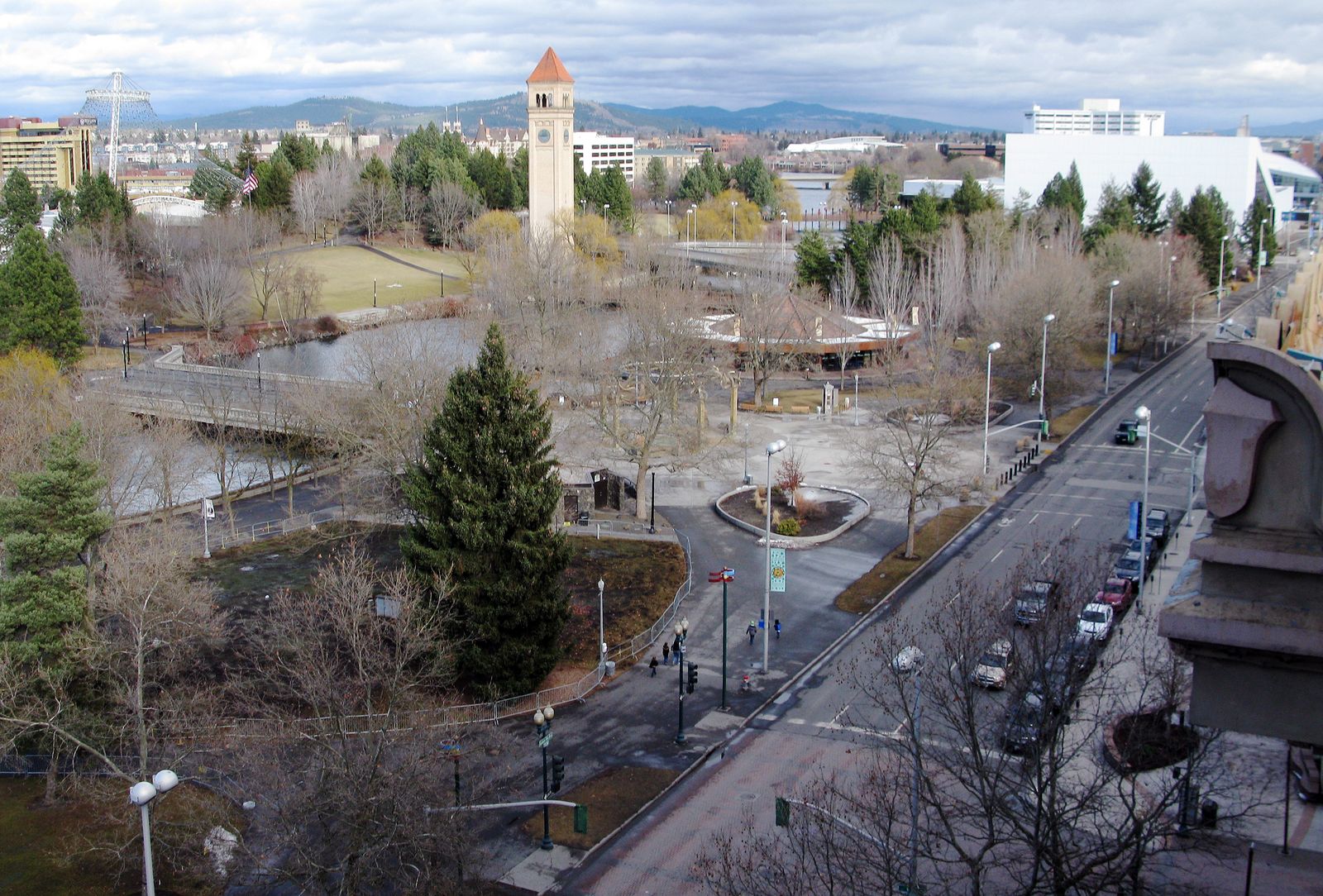
Spokane Falls Boulevard
For the opening of Expo ’74 40 years ago, a contest was held to rename the nearby street. Robert Greider suggested the name “Spokane Falls Boulevard” as the new name for Trent Ave. between Division St. and Monroe St. Greider, born in 1897 and who arrived in Spokane in a buckboard wagon in 1902, thought the name had a historical ring to it.
Section:Then & Now
Image One
Photo Archive
| The Spokesman-Review
Image Two
Jesse Tinsley
| The Spokesman-Review
For the opening of Expo ’74 40 years ago, a contest was held to rename the nearby street. Robert Greider suggested the name “Spokane Falls Boulevard” as the new name for Trent Ave. between Division St. and Monroe St. Greider, born in 1897 and who arrived in Spokane in a buckboard wagon in 1902, thought the name had a historical ring to it. From his childhood, he remembered Trent, then called Front, Ave., as a broad muddy lane running between the railroad tracks and a string of shacks and transient hotels. But that four-lane avenue freshly paved for Expo has an important place in local history. Before white settlement, natives gathered here to fish for salmon. The first white settlers built a mill, a store and cabins there in the early 1870s. The U.S. Army stationed soldiers here in 1877. In 1887, Indians lined up outside Loewenberg’s Mercantile at Front Ave. and Howard St. to receive food rations from Indian agent Rickard D. Gwydir, who was chosen as envoy to the local tribes by President Grover Cleveland. For three years, Gwydir negotiated with Chiefs Seltice, Garry, Whistelposum, Moses, Tonasket and Skolaskin. The Confederate Civil War veteran from Kentucky also wrote down many of the stories he heard from Indian people and the earliest settlers, many recounted in the book "Recollections from the Colville Indian Agency 1886-1889", edited by Kevin Dye. He was part of an era of reform following decades of war and government agents who were callous and corrupt. Gwydir lobbied for a police force to stop the whiskey trade to the Indians and for healthcare. "A physician cannot do justice to his profession and treat dangerous cases in an ill-ventilated lodge or tepee, the patient laying on a skin or blanket thrown on the ground. The calls of humanity, if nothing else, should cause the establishment of a hospital at this agency." He lost his job when the administration changed in 1889. He worked in the Treasury Department in the second Cleveland administration, and later worked in Spokane for the city, the county and the federal court system. He often wore a fringed buckskin jacket and was a popular raconteur of frontier tales. He died in 1925 at the age of 80. A co-worker said of him, “He was an outstanding, honorable, earnest and independent gentleman. As Indian agent he gave satisfaction, not only to the government, but to the Indians, who regarded him as their ‘Big Friend.’”
Share on Social Media

